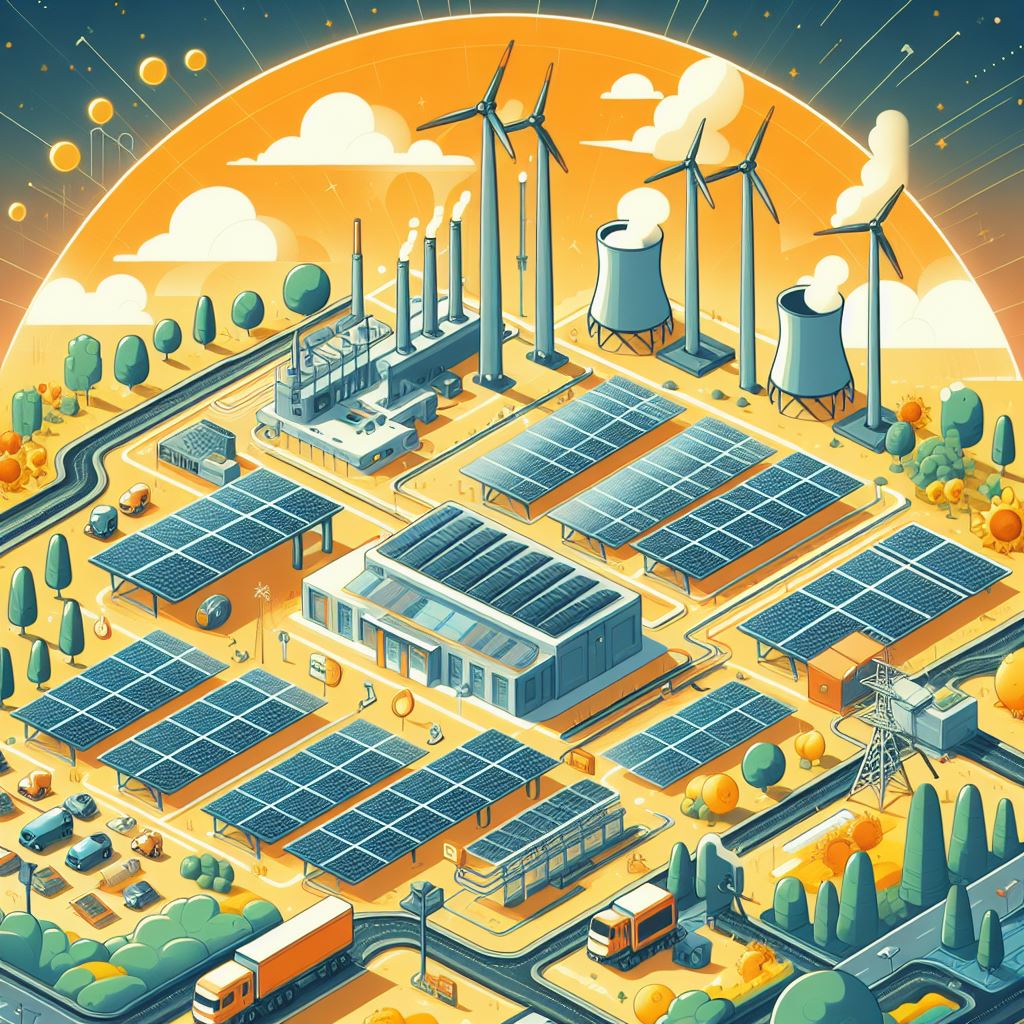Introduction
We live in an era where sustainability has become more than just a buzzword. It has become a necessity. With climate change and ecological degradation becoming more apparent, it is essential to prioritize sustainable practices. Sustainability is the ability to meet the needs of the present without compromising future generations’ ability to meet their own needs.
In this guide, we will delve into the sustainability sector and how entrepreneurs can navigate it successfully. We will explore the critical components that make up a sustainable business model from ideation to market. This guide will equip you with the necessary tools to develop and implement an environmentally and socially responsible business.
We will identify the importance of researching your idea, developing a sustainable business model, building a sustainable team, marketing your sustainable brand, implementing sustainable practices, and, most importantly, the need for sustainability. So, if you’re ready to take on the sustainability sector, let’s dive in.

Researching your idea
Introduction: Sustainability is the need of the hour. Maintaining a balance between the environment, society, and economy is crucial to meet the present needs and the needs of future generations. As an entrepreneur, you have the power to bring change in the world and create a sustainable future. This guide will help you turn your sustainable idea into a profitable business.
Researching your idea: Identifying the problem your idea solves is the first step towards creating a sustainable solution. Conduct thorough research to identify the root cause of the problem and how your idea can provide an effective solution. Evaluating the market and competition gives you an insight into the demand for your product or service. It also helps you identify your competitors and their strengths and weaknesses.
Assessing the feasibility and sustainability of your idea is essential to ensure that your idea aligns with the principles of sustainability. Consider the environmental, social, and economic impact of your solution. A sustainable idea not only benefits your business but also contributes positively to society and the environment.
Developing a sustainable business model: Defining your unique value proposition helps you stand out from the competition and attract customers. Creating a revenue model based on sustainability ensures that your business generates revenue while minimizing the negative impact on the environment and society. Identifying key partnerships and collaborations with businesses aligned with your sustainability goals helps you expand your business and create a positive impact.
Building a sustainable team: Hiring for mindset and shared values helps you build a team that shares your passion for sustainability and is committed to achieving your business goals. Cultivating a positive work culture based on sustainability creates a fulfilling work environment for your employees. Offering competitive benefits and incentives motivates your team and strengthens their commitment to sustainability.
Marketing your sustainable brand: Developing a compelling brand story based on sustainability helps you connect with your target audience and create a loyal customer base. Identifying your target audience and their preferences helps you create a marketing strategy that resonates with them. Creating a comprehensive marketing strategy that aligns with your sustainability goals helps you promote your business while creating a positive impact on society and the environment.
Implementing sustainable practices: Embracing a circular economy by minimizing waste and maximizing the use of resources helps you create a sustainable business model. Reducing your company’s carbon footprint by adopting eco-friendly practices contributes positively to the environment. Championing social responsibility by creating opportunities for underserved communities and promoting fair trade and ethical practices creates a positive impact on society.
In conclusion, turning your sustainable idea into a profitable business requires careful research, creative thinking, and a commitment to sustainability principles. By developing a sustainable business model, building a sustainable team, and marketing your sustainable brand, you can create a business that not only generates revenue but also creates a positive impact on society and the environment.
Developing a sustainable business model
Developing a sustainable business model requires a combination of creativity and strategy. Defining your unique value proposition is the first step towards building a strong foundation for your business. What sets you apart from your competitors? What value do you bring to the market? These are the critical questions to answer before developing your revenue model.
Creating a revenue model can be a challenging task, especially for entrepreneurs in the sustainability sector. You need to strike a balance between generating profits and creating positive societal and environmental impacts. It’s essential to consider different revenue streams such as sales, subscription, and licensing fees. Setting prices that are competitive and fair and profitable is vital.
Identifying key partnerships and collaborations play a critical role in building a sustainable business model. Having partners whose values are aligned with your business is essential. Look for organizations that have experience and expertise that complement your business, and work towards building strong relationships with them. Partnerships and collaboration can help your business to grow, handle new challenges, and share knowledge.
Building a sustainable business model takes time, patience, and a willingness to learn. With the right strategy, unique value proposition, revenue model, and partnerships, your sustainable business can thrive. As you develop your business model, don’t forget to keep sustainability at the forefront of your decision-making.
Building a sustainable team
Building a sustainable team is crucial for the success of any business, especially one in the sustainability sector. Hiring for mindset and shared values is essential to ensure that everyone on the team is aligned with the mission and vision of the company. It’s not just about the skills and qualifications of potential employees but also about their attitude towards sustainability.
Cultivating a positive work culture is also vital for building a sustainable team. This means creating an environment that fosters collaboration, open communication, and a sense of purpose. Employees should feel valued and respected, which will increase motivation and productivity.
Offering competitive benefits and incentives is another way to build a sustainable team. This includes things like health insurance, retirement plans, and flexible schedules. Sustainable companies should also offer perks that align with their values, such as bike storage, composting, and sustainable transportation incentives.
It’s important to remember that building a sustainable team takes time and effort. It’s not something that can be achieved overnight, but the benefits are worth it. By hiring for mindset and shared values, cultivating a positive work culture, and offering competitive benefits and incentives, sustainable businesses can attract and retain top talent.
Marketing your sustainable brand
Developing a compelling brand story is a crucial task for entrepreneurs in the sustainability sector. A brand story should clearly communicate the vision, mission, and values of your business. It should resonate with your target audience and showcase what makes your brand unique. A compelling brand story can set you apart from your competitors and create an emotional connection with your customers.
Identifying your target audience is equally important. Sustainability can mean different things to different people. Therefore, it is essential to understand the values, interests, and buying behaviour of your target audience. This will enable you to tailor your marketing messages and channels to reach them most effectively. Be sure to do your research, use data, and test your assumptions.
Creating a comprehensive marketing strategy should be the final step. A robust marketing strategy should be aligned with your business goals, target audience, and budget. It should include tactics for promoting your brand story, generating leads, nurturing relationships, and measuring success. A comprehensive marketing strategy can help you attract, retain, and convert customers in today’s crowded marketplace.
Remember, marketing your sustainable brand is not just about selling products or services. It is about building a community of like-minded individuals who share the same values and vision. Be authentic, transparent, and engaging in your marketing efforts. Evoke emotions, leverage social proof, and tell stories that inspire action. Your brand has the potential to make a difference and create a positive impact in the world.
Implementing sustainable practices
When it comes to sustainability, it’s important to go beyond just talking the talk and start walking the walk. This means implementing sustainable practices within your business to do your part for the environment and society. Here are some key ways to do just that:
- Embracing a circular economy: This is all about minimizing waste and maximizing resources by designing out waste and pollution, keeping materials and products in use, and regenerating natural systems. By reusing and recycling materials, you can reduce your environmental impact and even save money in the long run.
- Reducing your company’s carbon footprint: Carbon emissions are a major contributor to climate change, so it’s important to take steps to reduce your company’s carbon footprint. This might involve using renewable energy sources, improving energy efficiency within your workspace, or even investing in carbon offsets to offset your emissions.
- Championing social responsibility: Sustainability is about more than just the environment – it’s also about making a positive impact on society as a whole. This means taking steps to ensure fair labor practices, giving back to your community, and even supporting social initiatives or causes.
By implementing these sustainable practices within your business, you can not only improve your environmental impact but also make a positive difference in society. Plus, by committing to sustainability, you can also differentiate yourself from others in the market and appeal to customers who prioritize socially and environmentally responsible businesses.
Conclusion
It’s crystal clear that sustainability is not just a buzzword but an absolute necessity in today’s world. As an entrepreneur in the sustainability sector, your role is more critical than ever. So, let’s recap the key takeaways from this guide.
First things first, you need to research your idea thoroughly. Identify the problems your idea solves, evaluate the market and competition, and assess its sustainability. Then, develop a sustainable business model that defines your unique value proposition, creates a revenue model, and identifies key partnerships.
Next stop, building a sustainable team. Hire for mindset and shared values, cultivate a positive work culture, and offer competitive benefits and incentives.
It’s essential to market your sustainable brand by developing a compelling brand story, identifying your target audience, and creating a comprehensive marketing strategy. Lastly, implement sustainable practices like embracing a circular economy, reducing your carbon footprint, and championing social responsibility.
In a nutshell, sustainability is the need of the hour, and the responsibility lies with each one of us. We hope this guide has given you the necessary motivation to take the right steps towards a sustainable future. Remember, actions speak louder than words. So, go ahead, take action, and make a difference!















